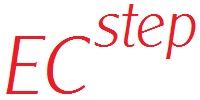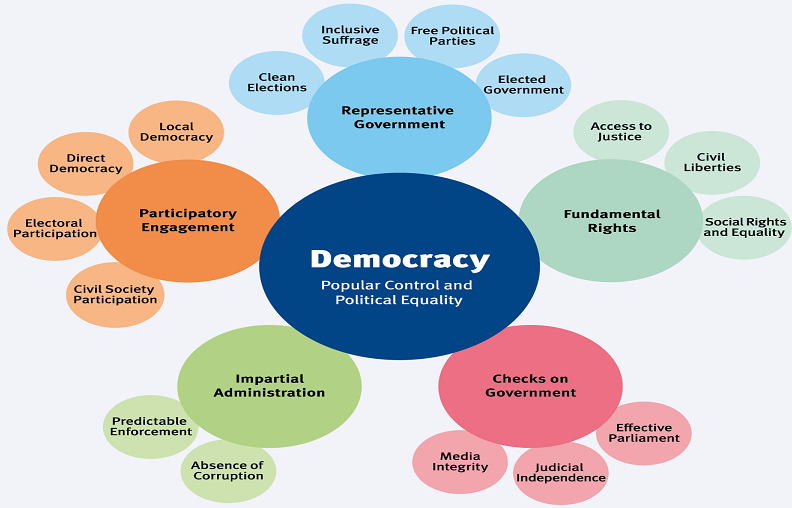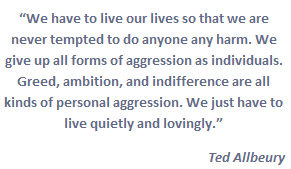Democracy is good
“We don’t know when we have to go.—–
We just have to be good to one another.”
Vibeke Christensen
Rule by openness, confidence, creativity, cooperation, and truthfulness – in short, always tell THE REAL TRUTH and always find the best possible solutions
A government for the people, by the people
What this really means is service to the people, by the people.
The most common form is a representative democracy or indirect democracy where – using a free electoral system – people choose to vote for who will represent them in a parliament.
- The democratic system should be sensitive i.e. quick to detect and respond to changes in the opinions of the people.
- Preferably the parliament should have only one chamber. This allows laws to be passed more efficiently – no deadlock situations.
- The parliament should have proportional representation so that all votes can contribute to the result.
- The electoral threshold should be sufficiently low to allow minority parties to enter the parliament.
Separation of powers is paramount to providing checks and balances in a democracy
Separation of powers refers to the division of a state’s government into “branches”, each with separate, independent powers and responsibilities so that the powers of one branch are not in conflict with those of the other branches.
The typical division into three branches includes
- a parliament making the laws (the legislative branch),
- a prime minister with a government having the executive power (the executive branch),
- a judicial system with courts administering justice in accordance with the laws (the judicial branch).
The intention behind a system of separated powers is to prevent the concentration of power by providing checks and balances.
Firstly, it ensures that the different branches control each other. This is intended to make them accountable to each other – these are the ‘checks’.
Secondly, it divides power between the different branches of government. This balance aims to ensure that no individual or group of people in government is ‘all-powerful’.
In a democracy: always stay away from echo chambers
Dr. Lisa M. MacLean gives these wise pieces of advice:
- Make a habit of checking multiple news sources to ensure you’re getting complete, objective information.
- Seek out people who have different perspectives than you. Take care to discuss new ideas with facts, patience, and respect.
- Practice constructive controversy. Use phrases such as, “I’d love to hear more about why you feel that way.” Or, “This is a safe space. We don’t all have to agree all of the time, I’d love to learn from you.” Or, “I respect that you feel that way, this is what I was thinking.”
- Remember that just because you want something to be true doesn’t make it fact.
- Read books about experiences completely different from your own. The more we read about others’ experiences, the more empathetic and understanding we can become.
The Democracy Index intends to measure the state of democracy in 167 countries and territories. The index is based on 60 indicators grouped into five different categories, measuring pluralism, civil liberties, and political culture.
Advantages of democracy
- It thrives on open minds, flexible thinking, diversity, curiosity, creativity, confidence, helpfulness, consideration, reliability, trustworthiness, accountability, free uncensored media, and people’s engagement in society.
- It promotes equality among citizens.
- It ensures better quality decisions (see below).
- It provides a method to deal with differences and conflicts.
- It enhances the dignity of citizens.
- It provides room for correcting mistakes.
Democracy improves the quality of decision-making
- Democracy is based on consultation and discussion.
- A democratic decision always involves many persons, discussions, and meetings.
- When a number of people put their heads together, they are able to point out possible mistakes in any decision.
- Democracy takes time – but taking time over important decisions is essential.
Less corruption in democratic countries
Transparency International (TI) has published the Corruption Perceptions Index (CPI). The CPI defines corruption as “the misuse of public power for private benefit”.
The CPI currently ranks 180 countries “on a scale from 100 (very clean) to 0 (highly corrupt)”.
Corruption is less prevalent in democratic countries.
The economic consequences of corruption are marked. With lesser corruption long-term economic growth and the rate of foreign investment increase.
◊ ◊ ◊
In the following video, Professor Alex Tan makes the case that democracy is still the best form of government — and shares the secret of which kind of democracy works best.
Humble leadership is crucial in a democracy
The key to true success is a humble spirit. Almost all of the people we regard as truly great—people who have had a lasting impact on the world—are people of humility.
Pat Williams writes in Humility: The Secret Ingredient of Success:
- Humble leaders are strong enough to listen to other points of view.
- Humble leaders are strong enough to admit their mistakes and learn from them.
- Humble leaders are strong enough to celebrate the achievements of others.
- Humble leaders are strong enough to surround themselves with talented people without feeling threatened or diminished.
- Humble people treat others as equals.
- Humble people don’t claim to know everything.
- Humble people are better team players.
- Humble people are willing to set aside their egos.
Empathy is equally important
The real job of a leader is not about being in charge, but it is about taking care of those in your charge.
The empathetic leader has a genuine interest in team members’ lives, the challenges they face, and their overall feelings.
The empathetic leader knows that listening and understanding come before speaking.–
In a free democratic society, these human rights are indispensable
Freedom of speech is essential and supports the freedom to articulate opinions and ideas without fear of retaliation, censorship, or legal sanction.
Freedom of association is the right of a person to come together with other individuals to collectively express, promote, pursue, and/or defend common interests.
The right to protest is a consequence of the right to freedom of speech and the right to come together with others and peacefully express one’s views. Taking part in marches, protests, and demonstrations must be allowed by the authorities.
In a democratic country, a demonstration can be justified in special situations.
◊ ◊ ◊–
The public is losing faith in democracy, says British MP Rory Stewart. In Britain, 84 percent of people say politics is broken.
Below is an older video in which Stewart calls to action to rebuild democracy, starting with recognizing why democracy is important.
Politicians should learn to trust the public.
For a democracy to work well, people should be enlightened and knowledgeable
This means easy access to free education and reliable, objective news media.
So free education funded through the government is fundamental in guaranteeing everyone has access to education. This serves to unfold the talents in the population and to further social mobility.
The news media should provide information that is objective, neutral, factual, and unbiased.
Freedom of all news media is fundamental. Any censorship by the state, the government, or special interest groups is paralyzing and will weaken society sooner or later.
Politicians need to know what the people think
Even in a democracy, some politicians may have limited touch with the people. They may tend to isolate themselves together with their friends and supporters.
However, it is crucial that every politician actively seeks to engage in society so that they know what people think. In this context the existence of completely free and uncensored news media is essential.
Conclusion: The whole idea of democracy is to serve the entire population – including minorities – in the best possible way – i.e. according to the wishes of the population.
–
Go to The Good Society Page
Go to The Autocracy Page
–







